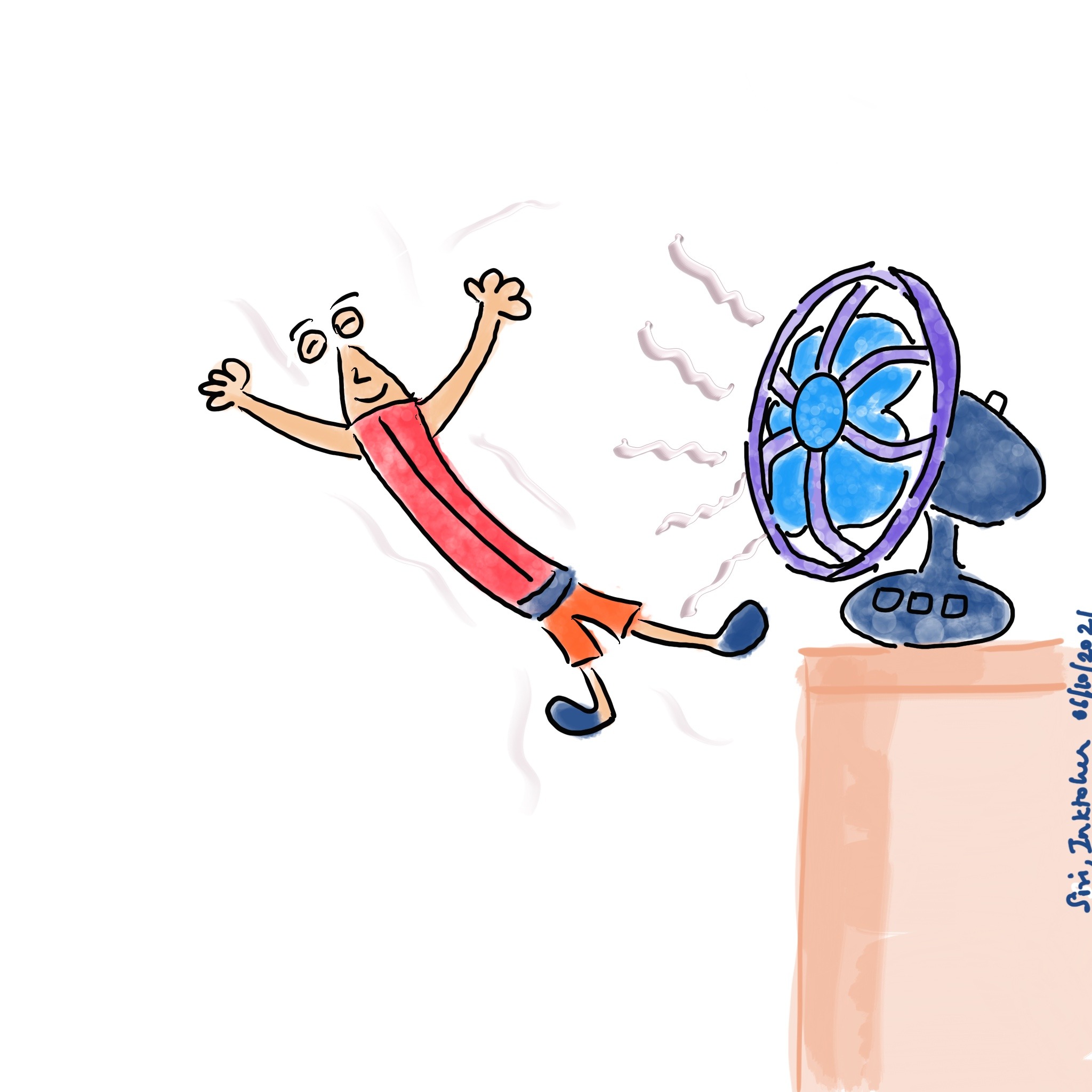As a coach, these terms really confuse me. I can imagine how frustrating it must be for a client who is looking for some support and is met with tons of jargon related to coaching and coaches. Two of the most popular ones in the professional coaching space are career coaching and executive coaching.
So, let’s unpack what Career and Executive Coaching means. As a bit of a bonus, we will also explore what Business Coaching is.
In this article, we will explore
- What does the Business Coach do?
- What does the Career Coach do?
- What does the Executive Coach do?
- Do the Coaches undergo any specialized training to be called a Career or an Executive Coach?
- What is the difference between a Career and an Executive Coach?
- How do I know what type of coach works for me?
- I need a bit of both, so which Coach should I pick?
Remember, Columbus, the adventurer who you got introduced to in this article on what coaching is. So, Columbus, after speaking to his friend, decides to first hire a coach. As part of his business plan to find new trade routes in the East through the open seas, he wants to do a small “test voyage” so that he can convince Queen Isabella I and King Ferdinand II that his foolhardy plan could work.
So, he needs to figure out how he can go about doing this. He thinks a coach will be the perfect person with whom he can sound things off, get clarity on this thinking, establish goals and action plans in order to get this business plan approved.
So, given that this is a professional goal he wants to accomplish, he has a few options of coaches he could hire from
- Business Coach (Goal = Professional, Focus = Business)
- Career Coach (Goal = Professional, Focus = Coachee)
- Executive Coach (Goal = Professional, Focus = Coachee)
- Performance Coach (Goal = Professional, Focus = Coachee)
- Leadership Coach (Goal = Professional, Focus = Coachee and their team) X
- Team Coach (Goal = Professional, Focus = Coachee’s Team) X
- Life Coach (Goal = Personal, Focus = Life Goals) X
- Organizational Coach (Goal = Professional, Focus = Organization, Department) X
- Agile Coach (Goal = Professional, Focus = Teams adopting Agile Methodologies)
- Mentor Coach (Goal = Professional, Focus = Coach) X
Out of this exhaustive array of options he needs to choose from (he needs a coach to figure out who he needs to pick! We have complicated the industry so much. 🙂 ), let’s eliminate the coaches he doesn’t need so that he can pick the right one.
- What kind of goal is Columbus looking to achieve? Personal or Professional = Professional
- This option eliminates Life Coach.
- Who is this coaching going to be focused on? Columbus Or His Crew Or His Family = Columbus
- This option eliminates the Business Coach, Agile Coach, Mentor Coach, Organizational Coach, and Leadership Coach.
- Is this about improving a specific skill related to his profession? No
- This eliminates Performance Coach.
- Is this about working on Columbus’s Business? Yes. Columbus is working on his business plan (for his business!) and wants to get sponsorship for his voyage.
So now we have 3 coaches who have made the shortlist.
- Business Coach
- Career Coach
- Executive Coach
Business Coaching
So, straight off the bat, the Business Coach is suitable for entrepreneurs and business owners. In our case, Columbus is an entrepreneur (adventurer, master of his own ship, blah blah blah), so a Business Coach would be suitable for him in this journey.
So now that’s clear, Columbus will hire a Business Coach.
Wait, I thought we were going to explore Career Coaching and Executive Coaching. So let’s do that now.
Career Coaching
Suppose Columbus is not the Master of his own ship. Instead, he is working for a large corporation, “Amazing Maps – The Finest Mapmakers In The World”. He is tired from the endless hustling and meetings he has to do all day. There is no time for wine and dine and just being fine. He is drawn out and wants to get out of the hamster wheel. His heart longs to sail into the open seas, with the wind behind his back and his arms spread towards the sun. Alas, this but remains a dream.
He decides to hire a coach to make this dream a reality.
So, a Career Coach is a suitable choice for Columbus, the employee of a corporation because the emphasis is on Columbus. The Career Coach will help Columbus
- chart a personal course through this career journey.
- get clarity on his professional and personal ambitions,
- set goals and achieve them
- get new insights into his beliefs, experiences and opportunities that he can use to reach his desired milestones with clarity, contentment and persistence.
- navigate career transitions
- encourage and celebrate milestones
- challenge and help reframe beliefs that are not helpful anymore
The Coach will support Columbus in getting unstuck from where he is, navigating resistance and obstacles so that he can get his sailboat sailing on his dream voyage.
Career Coaching focuses entirely on Columbus, his professional goals, navigating the resistance, obstacles and transitions towards his desired outcomes.
Executive Coaching
Suppose Columbus is a pseudo Master of the ship. What are we talking about?
He is the Head of Innovation for “Amazing Maps – The Finest Mapmakers In The World”. He is sort of the Master but answerable to shareholders, the board room, or a bunch of suits. So he can’t go off and do his own thing.
Columbus has been tasked by the powers-that-are, to plan a voyage to go into the open seas, and to find new trade routes to the East. The previous routes through the land have been blocked off due to some teeny tiny geopolitics (that included conquest and the fall of an empire) that are outside of the scope of this article 😉
So, this is Columbus’ first assignment as the Head of Innovation. He is very nervous, and such a task has not been attempted before. If he fails in this task, they will happily throw him in prison and behead him. So the stakes are literally high in this project. Columbus would need support in thinking strategically, pulling the plan together, inspiring his team to work with him, motivate them to join him in this foolhardy project. He needs to be an effective and inspiring leader and an astute executive who will bring glory and success to this enterprise. Columbus can’t go at this on his own; he needs support, so he hires a coach.
An Executive Coach would be the right choice for Columbus. An Executive Coach typically works with high-level leaders and executives. They typically work with people in the C-suite or high up the organisation chain. People who are responsible for big budgets, high-stakes businesses/projects, large teams and some serious accountability for their work.
Since our dear Columbus is a high-level executive (Head of Innovation, reporting to the CEO) and is responsible for a high-stakes assignment with a huge budget and some serious life-or-death consequences, an Executive Coach would be better equipped to coach him.
The Executive Coach would help Columbus to
- Hone his strategic thinking skills
- Make intentional decisions as the consequences are high stakes not just for him but also for his team
- Improve his personal leadership skills
- Navigate tricky decision-making
- Facilitate reflection
The Executive Coach will support Columbus as he sets on his journey of adventure with his team as a navigator and a leader.
Related read: Difference between a career coach and a career counsellor
Do the Coaches undergo any specialised training to be called a Career or an Executive Coach?
So here comes an often under-asked but important question from a client’s perspective. Do the coaches undergo any type of specialised training to be a Career, Executive or Business Coach?
To answer this question, I need to make something clear: a trained coach doesn’t mean the coach is better.
“Practice doesn’t make perfect. Practice makes permanent.”
Training means nothing if you train to be a coach and practice absolutely from your old behavioural patterns. If you have no training but have worked with yourself, that counts a lot. The training to be a coach is not specific to an industry or specialisation. The coaching framework is applicable to anyone we coach, irrespective of their background, professional journey, challenges, or journeys.
But as coaches, we are drawn towards certain areas of work because of our own backgrounds and aspirations. We would like to work with certain kinds of clients, so that informs the specialisation we “assign” ourselves to. So to call oneself an executive, career or a business coach, there is no coaching-specific specialisation training. It simply is the coach’s call on what they would like to call themselves.
So how does this help you as a client to know you are picking the right kind of coach, and if the coach can indeed help you in that area?
While it is true that the coaching training (if the coach is accredited by an international coaching body), is purely on coaching skills, coaches tend to rely on their experience, skills and qualifications as well when picking and choosing the kind of process they go through with their clients in a coaching session.
For example, I have chosen to call myself a Career Coach. I’ve got 19 years of experience working in large corporates and I have grown up the corporate ladder and been able to break through the glass ceilings as a woman. I’ve been able to change careers thrice. So this gives me the requisite background and experience to have seen through a wide range of career issues, professional roadblocks and successes in my 19-year-long career working in top companies, and many a time as a “misfit” and an “outsider”.
I’ve also got the requisite coach training (close to 150+ hours of coach training so far), and I have an international accreditation (ICF ACC) that testifies that I have put in the time, effort and practice to be a coach.
Along with all this, I am a meditation practitioner, and my inner work is guided by the principles of self-awareness, inquiry, reflection and principles of non-violent communication. I read extensively (some may call obsessively!) and I write as well. So my coaching process in the session is informed by my training, professional experience, qualifications, lived experience and more so my personal coaching philosophy (link here).
So as a client, when you are approaching a coach, do some background research on the coach. Go through their experience on LinkedIn, their personal website, their profile on the coaching platform. Read through their testimonials, their writings and see if it resonates with you. Book a discovery call with them (if that’s made available) and see for yourself if you would like to work with this coach.
What is the difference between a Career and an Executive Coach?
The difference between a Career and an Executive Coach is the audience they work with, and the focus of the work in the sessions.
A Career Coach works with individuals, regardless of their professional role or business. They help them achieve their professional goals, remove roadblocks along the path, and support them in achieving whatever they wish to. A Career Coach also provides support to the individual to figure out how to resolve conflicts at workplace, performance issues, navigate promotion pathways, having difficult conversations, negotiating a salary rise, giving and receiving feedback, manage their time effectively and help them have a work-life balance.
Any professional issue is in the purview of a career coaching session, and the session is held with the client at the center. An individual can hire a career coach irrespective of their professional experience, background and industry.
An Executive Coach primarily works with people in the C-suite or management positions with high stakes in delivery, accountability, and responsibility. The focus of the coaching sessions is navigating tricky decision-making, handling stakeholders, fine-tuning personal leadership style, giving and receiving feedback, handling difficult conversations like firing people, giving performance feedback, and managing the consequences of accountability.
Typically, a company hires an Executive Coach for their executives. But an individual in that role can also go out and seek to hire an Executive Coach for themselves, which people normally do during their first jump into such roles.
How do I know what type of coach works for me?
Ask yourself these questions.
- Are you a business owner or an employee? Business Coach
- Are you involved in a high-stakes job with big-budget responsibility and large teams? Executive Coach
- Are you seeking coaching to clarify your career and professional goals? Career Coach
I need a bit of both Career and Executive Coaching, so which Coach should I pick?
If you are working with a coach, and you are finding it helpful continue with the coach. The kind of focus areas you bring into the session can be guided by what it is that you most need at the moment.
If you haven’t worked with a coach, explore both kinds of coaches. Read up on their backgrounds, experience and book discovery calls with them. An excellent Career Coach would be able to do Executive Coaching as well. I have clients who are senior leaders or are looking to make the jump to C-suite and some of their sessions are pure-play executive coaching. A good Executive Coach should be able to help you work with your professional goals as well.
So, between the Executive and Career Coach, you could go for either one based on the person, your comfort level with that person and whether you find it helpful to work with them. The lines are blurred between the two. The distinction is there as a guide, and it is not hard and fast.
I’ve tried to make this as comprehensive as possible, and in case you have further questions that can help bring clarity to Business, Career and Executive Coaching, please write to siri@sanerworklife.com, and I’ll be sure to answer them. I reply to every single email, so don’t hesitate to email me.
Redefine Your Career Path
Ready to redefine your career path? Book a free session to unlock your potential with personalized career coaching.





